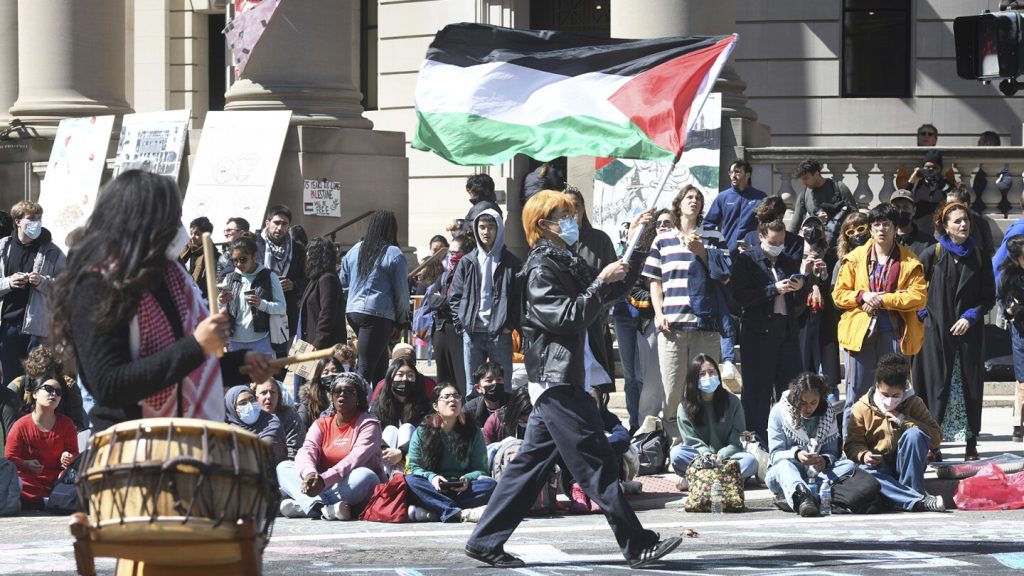Columbia University has canceled in-person classes due to growing tensions over Israel’s war in Gaza. Pro-Palestinian demonstrators have set up encampments on various campuses, leading to arrests at universities like the University of Michigan, MIT, and Yale. The protests have caused a divide on college campuses, with some calling for condemnations of the Israeli assault on Gaza, while others feel unsafe due to rising antisemitic sentiment.
The president of Columbia University expressed sadness over the situation on campus and announced that all classes would be held virtually on Monday. The demonstrations have sparked debates about free speech and inclusivity, with some students feeling unsupported due to the ongoing conflict between Israel and Palestine. At MIT, students set up an encampment to call for a ceasefire and protest what they view as the school’s complicity in the genocide in Gaza.
Jewish students at Columbia have reported feeling scared and unsafe on campus due to protests calling for violence against Israel. Some students have criticized the university for not taking a stronger stance against antisemitism. The protests have intensified as tensions continue to rise, leading to a crackdown on demonstrators at Yale and other campuses. Multiple students have been arrested and charged with misdemeanors for trespassing.
At Yale, protesters have called on the university to divest from defense companies that do business with Israel, citing concerns about funding violence. Yale’s president warned protesters about violating university policies and guidelines, stating that their actions create safety hazards and impede the work of the university. The protests have led to arrests and disciplinary actions at various universities, as students continue to demand justice for the victims of the conflict in Gaza.
The Middle East conflict has caused deep moral distress among many students, leading to calls for de-escalation and dialogue on campus. Some students have been suspended for participating in protests, including the daughter of U.S. Representative Ilhan Omar. The protests have raised questions about the limits of free speech and the responsibility of universities to address controversial issues. As tensions remain high, university officials are working to find a resolution to the crisis and restore a sense of safety and inclusivity on campus.
The situation on U.S. college campuses reflects the broader tensions surrounding Israel’s war in Gaza, with protests and demonstrations continuing to escalate. The cancelation of in-person classes and the crackdown on protesters have highlighted the challenges of balancing free speech and security concerns on campus. As students and faculty grapple with the ongoing conflict, efforts are being made to address the underlying issues and promote reconciliation and understanding in the academic community.


